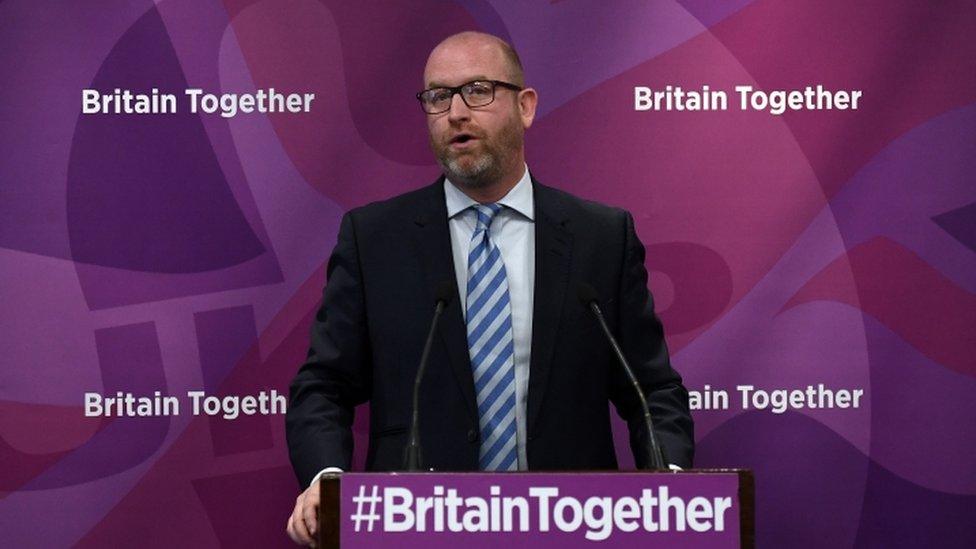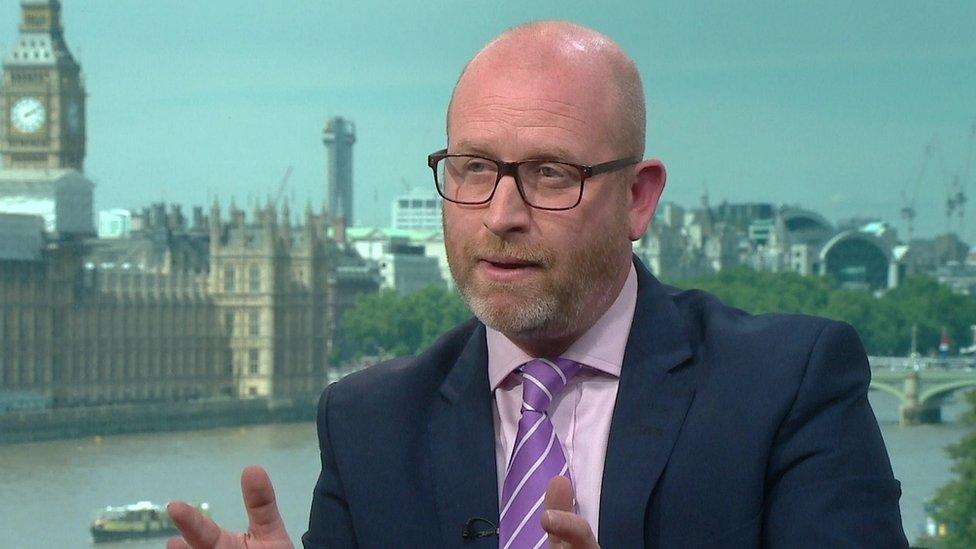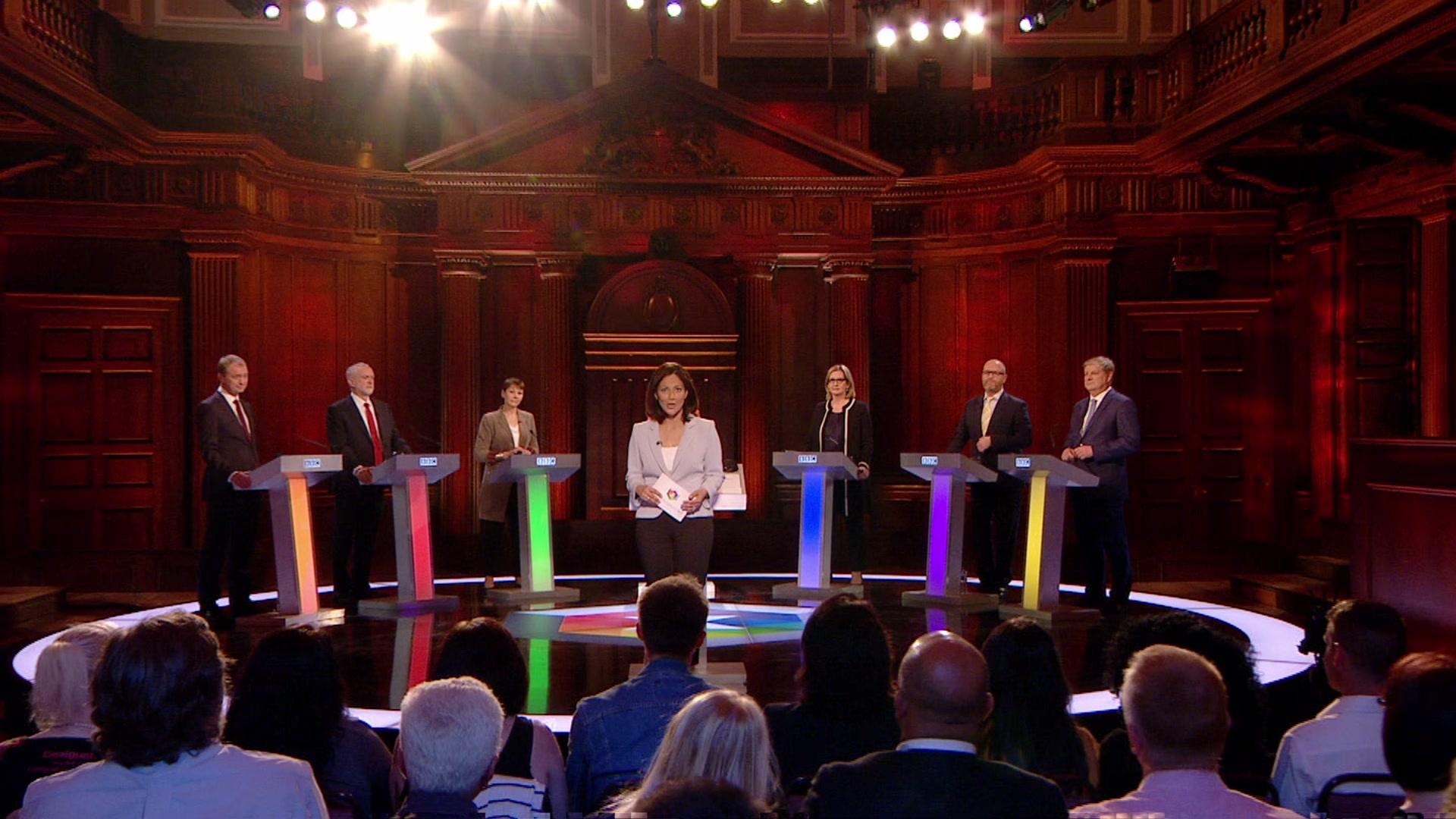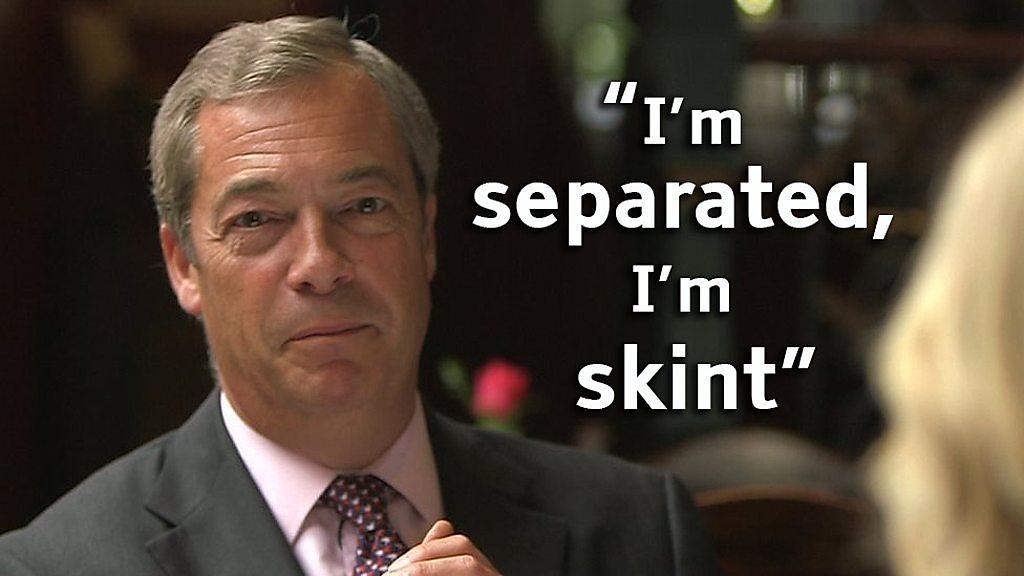General election 2017: UKIP predicts election success
- Published

UKIP will win seats at the general election, even though they had no MPs at the end of the last parliament, its leader Paul Nuttall has predicted.
He told the BBC he was hopeful the party could get "over the line in a number of seats".
But he would not be drawn on how many seats, or in which constituencies.
The party is standing in about half the number of seats contested in 2015. Its only MP in the last parliament, Douglas Carswell, defected in March.
Mr Nuttall said UKIP was campaigning strongly in seats where it has local councillors.
And he rejected suggestions the party was in decline, predicting that by the end of 2018, UKIP would be "bigger in terms of membership and higher in the polls than it's ever been before".
Asked about suggestions support for UKIP could cost the Conservatives seats, he told BBC Radio 2's Jeremy Vine he had struck deals with Brexit-supporting MPs from both the Tories and Labour, to help them retain their seats:
"In some places we have stood down in favour of a Labour MP," he said.
"People like Kate Hoey, for example, I don't want to see Kate Hoey not in the House of Commons because she's been a true Brexiteer all her life.
"What we need is for the prime minister to go into these negotiations strong, confident in our country and not prepared to backslide."
Veil ban
He also spoke about the Manchester attack and said that while the prime minister was not to blame for last week's bombing, Theresa May was responsible for cutting police numbers
Local police officers who are known in a neighbourhood were more likely to have the trust of the locals who would pass information to them, he said.
He also talked about banning Muslim women from wearing a full face veil.
He said he was "serious" about banning the veil in the UK and claimed that other countries in Europe were also going the same way.
He said such a ban was needed for greater integration, so that people could be identified on CCTV and also because of vitamin D deficiency.
- Published29 May 2017

- Published30 May 2017

- Published30 May 2017
